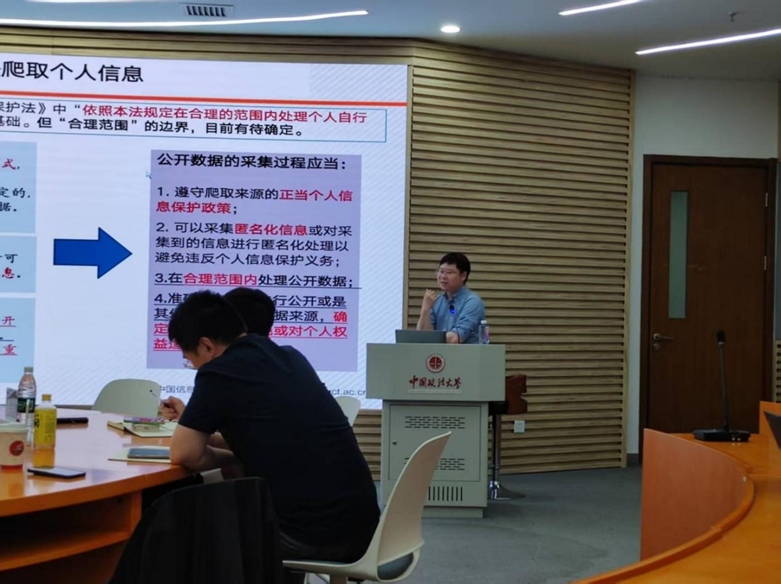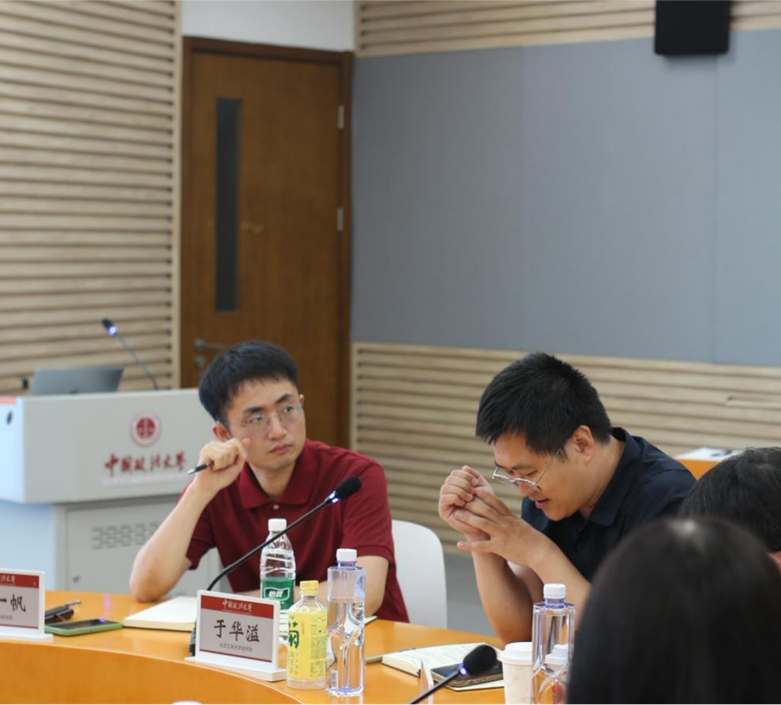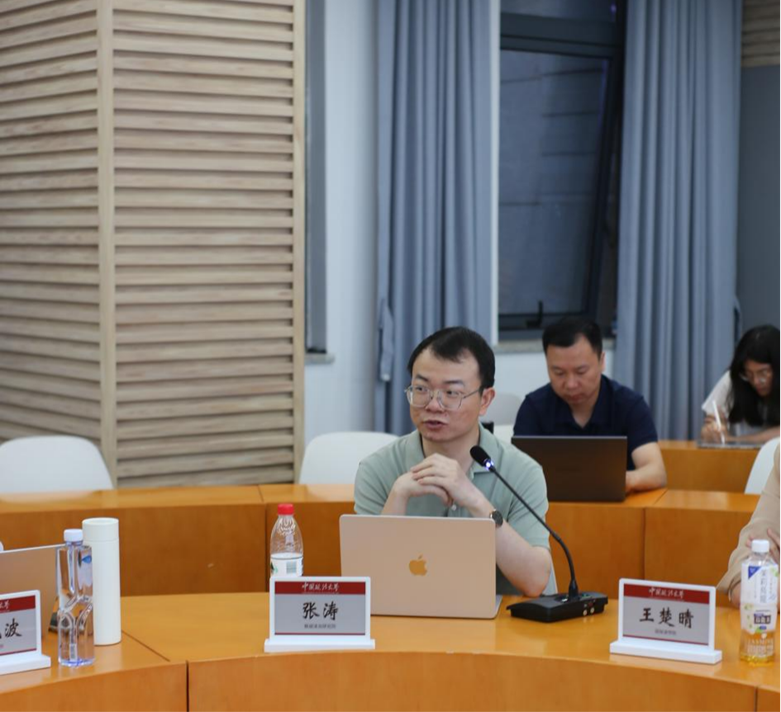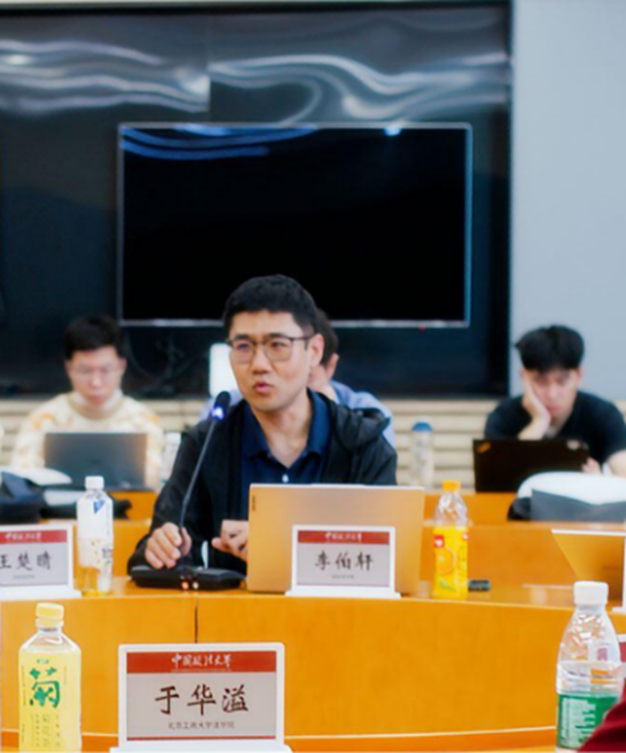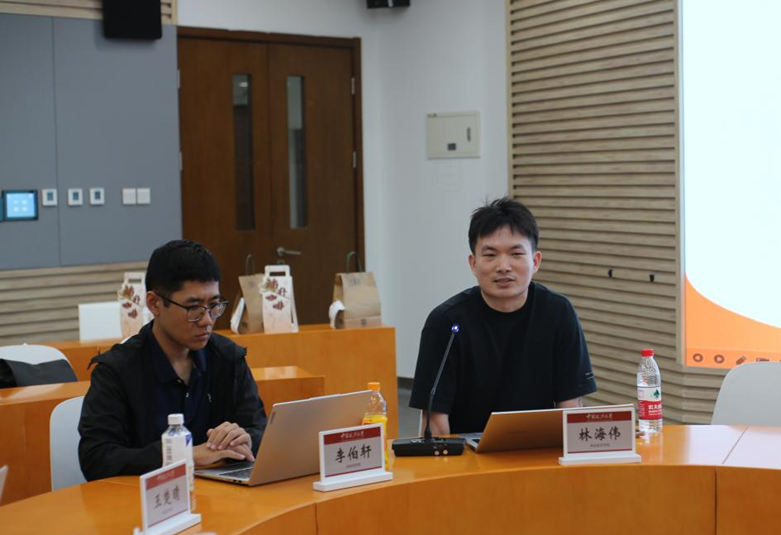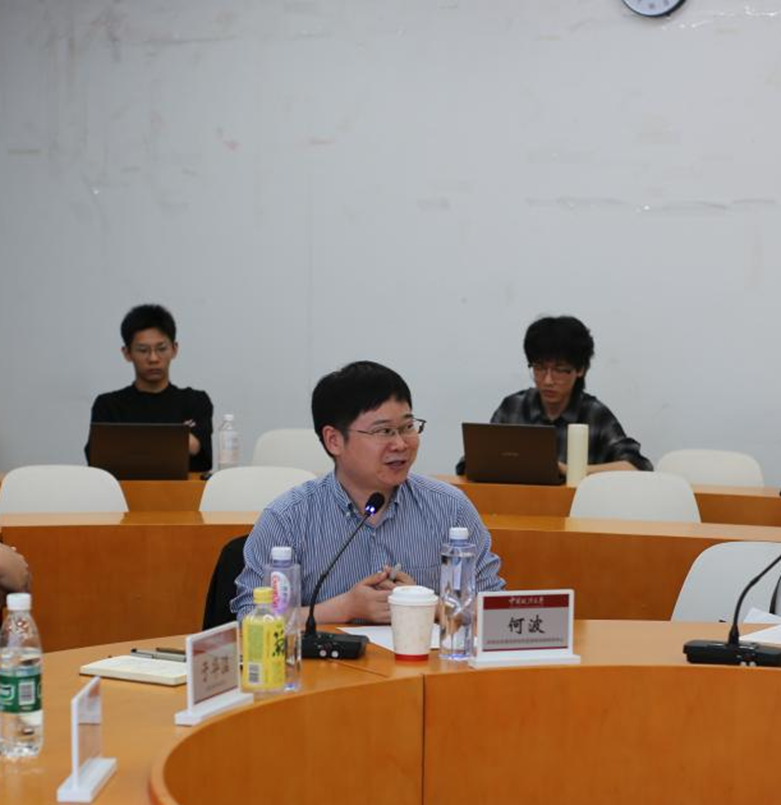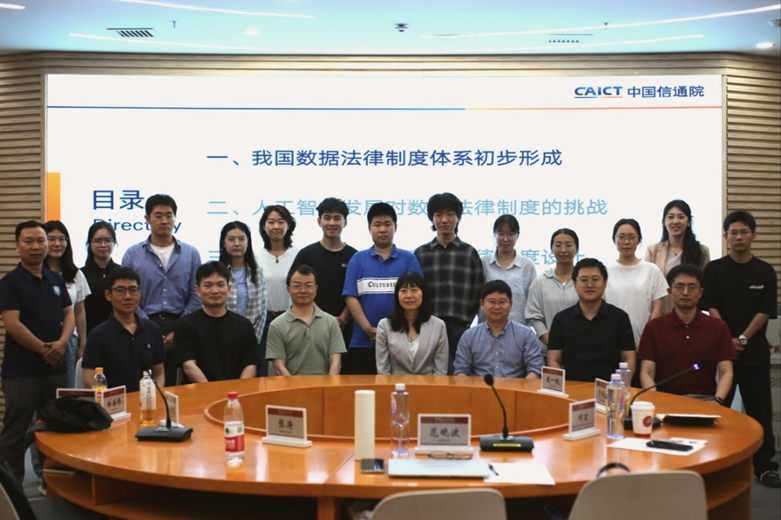On June 17th, 2025, the 54th Young Scholars Academic Salon of China University of Political Science and Law (CUPL), titled "Data Legal System Design for Artificial Intelligence," was successfully held in Room 0111 of the Teaching and Library Comprehensive Building at CUPL's Haidian Campus. The event was co-hosted by the CUPL Office of Scientific Research and the School of International Law CUPL / School of Foreign-Related Rule of Law CUPL.
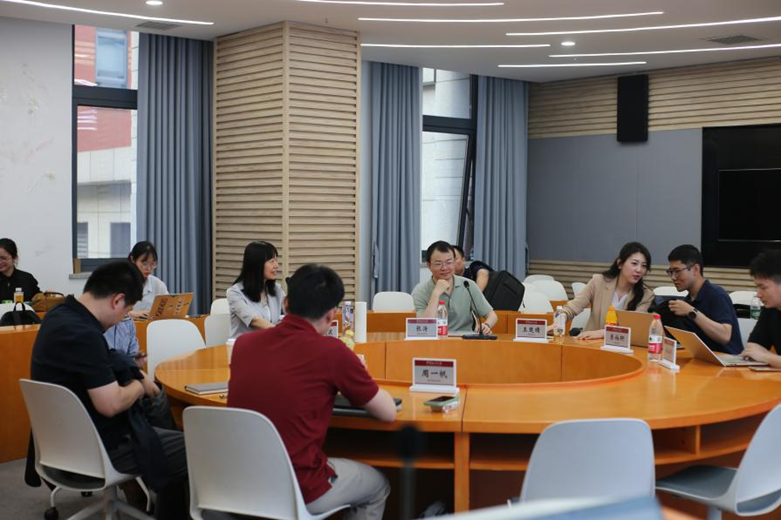
The salon invited Mr. He Bo, Director of the Internet Law Research Center at the China Academy of Information and Communications Technology, to deliver a lecture on "Data Legal System Design for Artificial Intelligence." The event featured a vibrant atmosphere, with the presenter delivering an insightful lecture. Distinguished discussants engaged in in-depth discussions, collectively unveiling an academic feast with intellectual exchange.
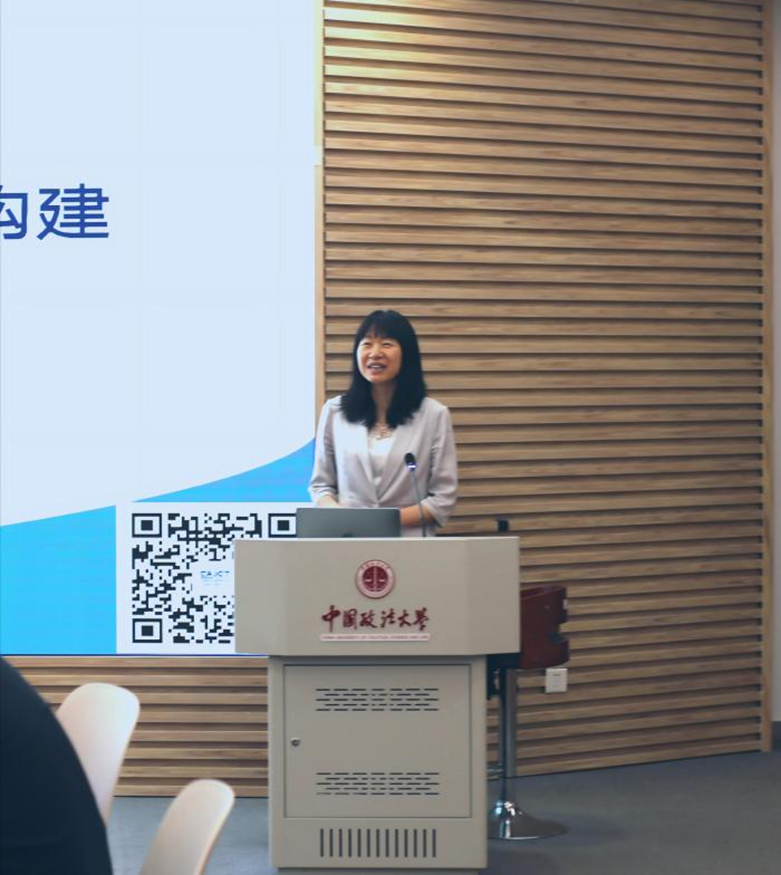
At the beginning of the salon, Professor Fan Xiaobo, the moderator, presided over the opening and delivered a speech. She pointed out that the salon focused on the core issue of AI data legal systems, aiming to promote the improvement and innovation of China's data governance framework and provide institutional safeguards for the development of the AI industry. Director He Bo first introduced the construction process and framework of China's data legal system, providing an in-depth analysis of the challenges brought by AI development to data law. Associate Professor Zhang Tao from the CUPL Data Law Lab focused on the core issue of data ownership confirmation. Associate Professor Li Boxuan from the the School of International Law CUPL addressed the practical challenges of insufficient training data for AI. Lecturer Zhou Yifan from the Academy for the Foreign-Related Rule of Law of CUPL inquired about the latest progress in Digital Economy Partnership Agreement and the key issues or technical obstacles encountered in their advancement. Lecturer Lin Haiwei from the Law School of China Women's University raised questions about the applicability of the traditional "Third-Party Doctrine" in the era of deep AI interaction.
